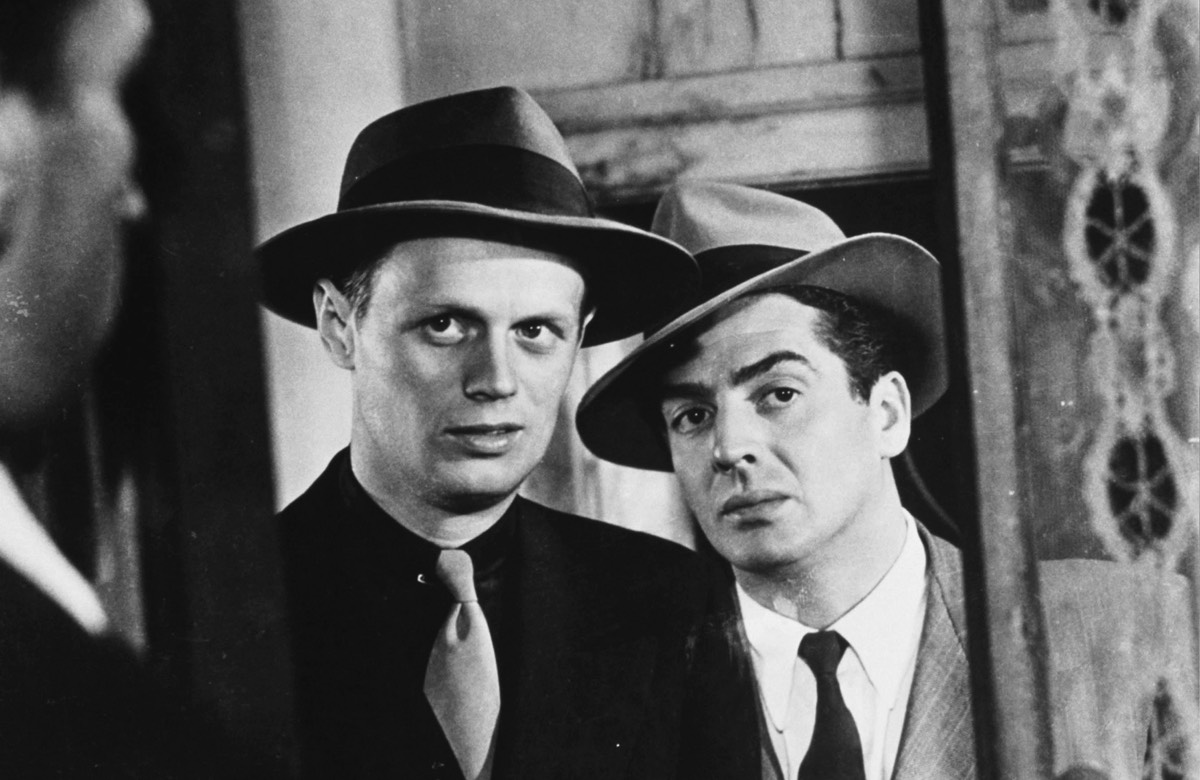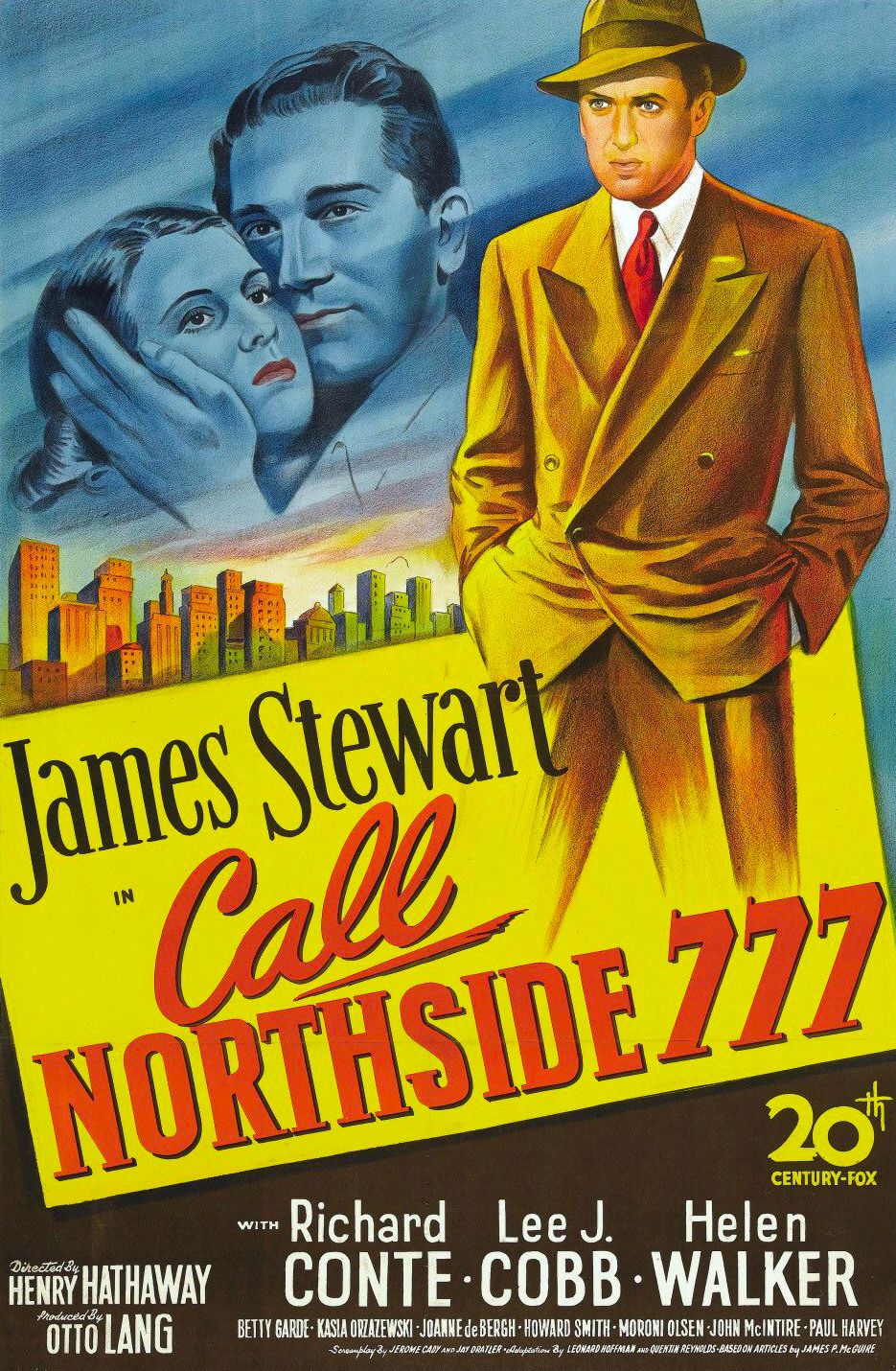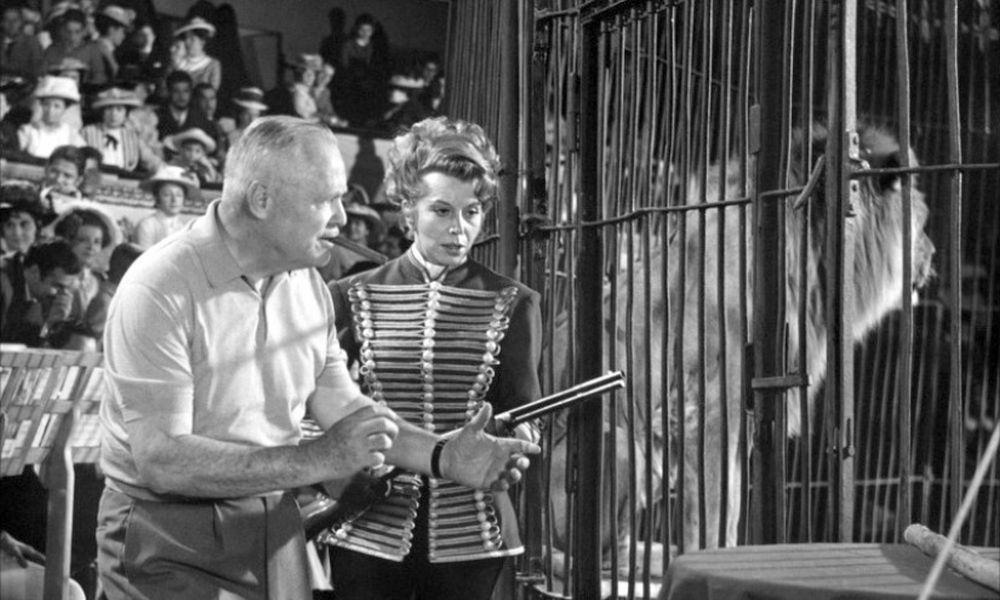“One of the most professional of Hollywood journeyman directors, making films for more than 40 years, most of them for Paramount and Twentieth Century-Fox, the majority of them good (apart from a little clutch in the late 1950s), and some superbly entertaining… His films themselves are testimony to his ability to heighten narrative tension and shoot action so exhilarating it made the adrenaline run.” - David Quinlan (Quinlan's Film Directors, 1999)
Henry Hathaway
Key Production Country: USA
Key Genres: Drama, Western, Action, Adventure, Thriller, Romance, Adventure Drama, Crime, Mystery, Film Noir, Crime Drama, Spy Film
Key Collaborators: Lyle Wheeler (Production Designer), Gary Cooper (Leading Actor), Lucien Ballard (Cinematographer), Hans Dreier (Production Designer), Maurice Ransford (Production Designer), John Wayne (Leading Actor), Tyrone Power (Leading Actor), Louis D. Lighton (Producer), Joseph MacDonald (Cinematographer), Norbert Brodine (Cinematographer), James B. Clark (Editor), Alfred Newman (Composer)
Key Genres: Drama, Western, Action, Adventure, Thriller, Romance, Adventure Drama, Crime, Mystery, Film Noir, Crime Drama, Spy Film
Key Collaborators: Lyle Wheeler (Production Designer), Gary Cooper (Leading Actor), Lucien Ballard (Cinematographer), Hans Dreier (Production Designer), Maurice Ransford (Production Designer), John Wayne (Leading Actor), Tyrone Power (Leading Actor), Louis D. Lighton (Producer), Joseph MacDonald (Cinematographer), Norbert Brodine (Cinematographer), James B. Clark (Editor), Alfred Newman (Composer)
"Durability cannot conceal great oscillations in his work. And professionalism and the legend of his colorful temper should not excuse frequent dullness. Because a man has directed for so long does not ensure that his character has matured. Close study of Hathaway reveals, at best, an amiable enthusiasm for adventure, but at worst, the considerable endurance test, of say, the overrated Call Northside 777." - David Thomson (The New Biographical Dictionary of Film, 2002)
"They don't make them like Hathaway anymore, especially in the lengths of their careers... Perhaps it was because he was so resolutely anti-intellectual that he lasted so long, for he was certainly not unintelligent, as he showed with the very strange, heady, and really rather fantastical Peter Ibbetson (1935)." - Mario Reading (The Movie Companion, 2006)

Kiss of Death (1947)
"Henry Hathaway is a director without complexes or neuroses even when his material is saturated with these modern accoutrements... Hathaway's charm consists chiefly of minor virtues, particularly a sense of humor, uncorrupted by major pretensions, but this charm is also a limiting factor." - Andrew Sarris (The American Cinema, 1968)
"Henry Hathaway is a filmmaker rarely spoken of in the same breath as his more famous and critically admired contemporaries. He epitomised what’s known as the ‘journeyman’ director, amassing a considerable body of work across five decades without leaving an easily identifiable stylistic or thematic through-line between pictures. But this isn’t to say that his is a filmography undeserving of excavation. He could be imitative and modish, but never less than highly skilled, and on more than a few occasions masterful, commanding loyalty from his leading actors – as demonstrated by the seven films made with Gregory Peck. If his preferred genre, in which he’d earn his spurs and return to time and again, was the western, Hathaway proved his adaptability by refusing to be tied down, not least during his long tenure at 20th Century Fox." - Matthew Thrift (BFI, 2018)
"Although Hathaway is not the master of theme as are fellow action directors, Ford, Wellman, and Hawks, the director's career nonetheless brilliantly reflects Hollywood trends. His work can be broken up into five stages: (1) The solidarity of men in action (The Lives of a Bengal Lancer, 35); (2) Patriotism (The House on 92nd Street, 45); (3) Complex psychology (Call Northside 777, 48), (4) Personal quests (From Hell to Texas, 58); (5) Reflective aging protagonists (True Grit, 69)." - William R. Meyer (The Film Buff's Catalog, 1978)
"A common thread that runs through Hathaway’s filmography is his knack for combining strong character development with riveting action sequences. He often portrayed characters that were inherently flawed or troubled, lending depth and intrigue to his narratives." - Bronze Screen Dream
“In the 1960s, Hathaway was the studios’ action director of choice. He directed three-fifths of the super-Western How the West Was Won (1962), and was chosen by John Wayne to helm his vanity horse opera True Grit (1969). But Hathaway waded through a lot of chaff in the course of his career and close inspection of his oeuvre suggests fewer director’s choices than miracles of collaboration.” - Tom Charity (The Rough Guide to Film, 2007)
“The director of a handful of memorable films, among numerous mediocre ones, during a prolific 40-year career. Though some have mistaken this artisan for an artist, he has failed to live up to the promise of two hight points in his career: the first in the mid-Thirties with the enormous commercial success of Lives of a Bengal Lancer and the remarkable Peter Ibbotson; and the second in the postwar years, when, under Louis de Rochemont’s tutelage, he contributed to the introduction of documentary realism into the thriller with The House on 92nd Street, 13 Rue Madeleine, Call Northside 777, and Kiss of Death.” - Georges Sadoul (Dictionary of Film Makers, 1972)
“Beginning with a series of low-budget Westerns starring Randolph Scott, he was an established director of prestige pictures by 1936. At first with Paramount and later with Fox, he gained the reputation of being a skilled craftsman who handled his material straightforwardly with few complications or pretensions. He was known as a studio workhorse who made the most of his assignments, and was within budget and on schedule… He worked proficiently in a variety of genres, but was at his best with action footage, particularly Westerns and crime dramas. Occasionally, also his own producer, Hathaway was the consummate Hollywood professional.” - The Film Encyclopedia, 2012
“Though he lacks the reputation of his contemporaries Ford and Hawks, Hathaway spent more than 40 years turning out quality Westerns and thrillers, many of which have attained classic status.” - Leonard Maltin's Movie Encyclopedia, 1995
“The archetypal studio professional, Hathaway began working in films before the industry had settled in Hollywood. During his 40-year career he directed over 60 features (including Paramount's first Technicolor picture, 1936's The Trail of the Lonesome Pine), became a pioneer of location shooting, and developed a reputation as a technically accomplished, reliable entertainer.” - The Virgin International Encyclopedia of Film, 1992
Selected Filmography
{{row.titlelong}}
Henry Hathaway / Favourite Films
The Birth of a Nation (1915) D.W. Griffith, Broken Blossoms (1919) D.W. Griffith, Gone with the Wind (1939) Victor Fleming, Great Expectations (1946) David Lean, The Last Moment (1928) Pál Fejös, The Lives of a Bengal Lancer (1935) Henry Hathaway, The Red Shoes (1948) Michael Powell & Emeric Pressburger, Seventh Heaven (1927) Frank Borzage, The Way of All Flesh (1927) Victor Fleming, Wilson (1944) Henry King.
Source: Cinematheque Belgique (1952)
The Birth of a Nation (1915) D.W. Griffith, Broken Blossoms (1919) D.W. Griffith, Gone with the Wind (1939) Victor Fleming, Great Expectations (1946) David Lean, The Last Moment (1928) Pál Fejös, The Lives of a Bengal Lancer (1935) Henry Hathaway, The Red Shoes (1948) Michael Powell & Emeric Pressburger, Seventh Heaven (1927) Frank Borzage, The Way of All Flesh (1927) Victor Fleming, Wilson (1944) Henry King.
Source: Cinematheque Belgique (1952)
Henry Hathaway / Fan Club
Adrian Martin, José Luis Guarner, Martin Scorsese, Bertrand Tavernier, Richard T. Jameson, John Carpenter, Samuel Wigley.
Adrian Martin, José Luis Guarner, Martin Scorsese, Bertrand Tavernier, Richard T. Jameson, John Carpenter, Samuel Wigley.
"Fan Club"
These film critics/filmmakers have, on multiple occasions, selected this director’s work within film ballots/lists that they have submitted.
These film critics/filmmakers have, on multiple occasions, selected this director’s work within film ballots/lists that they have submitted.


